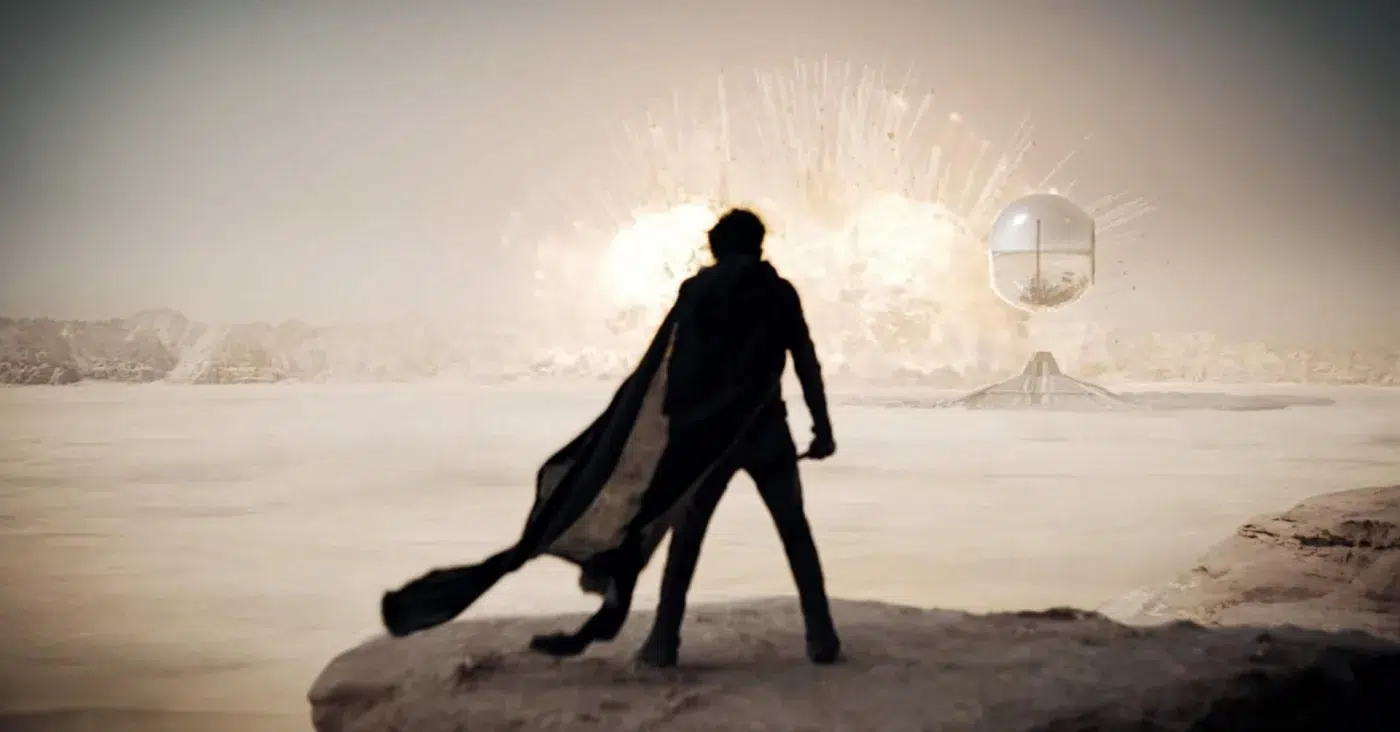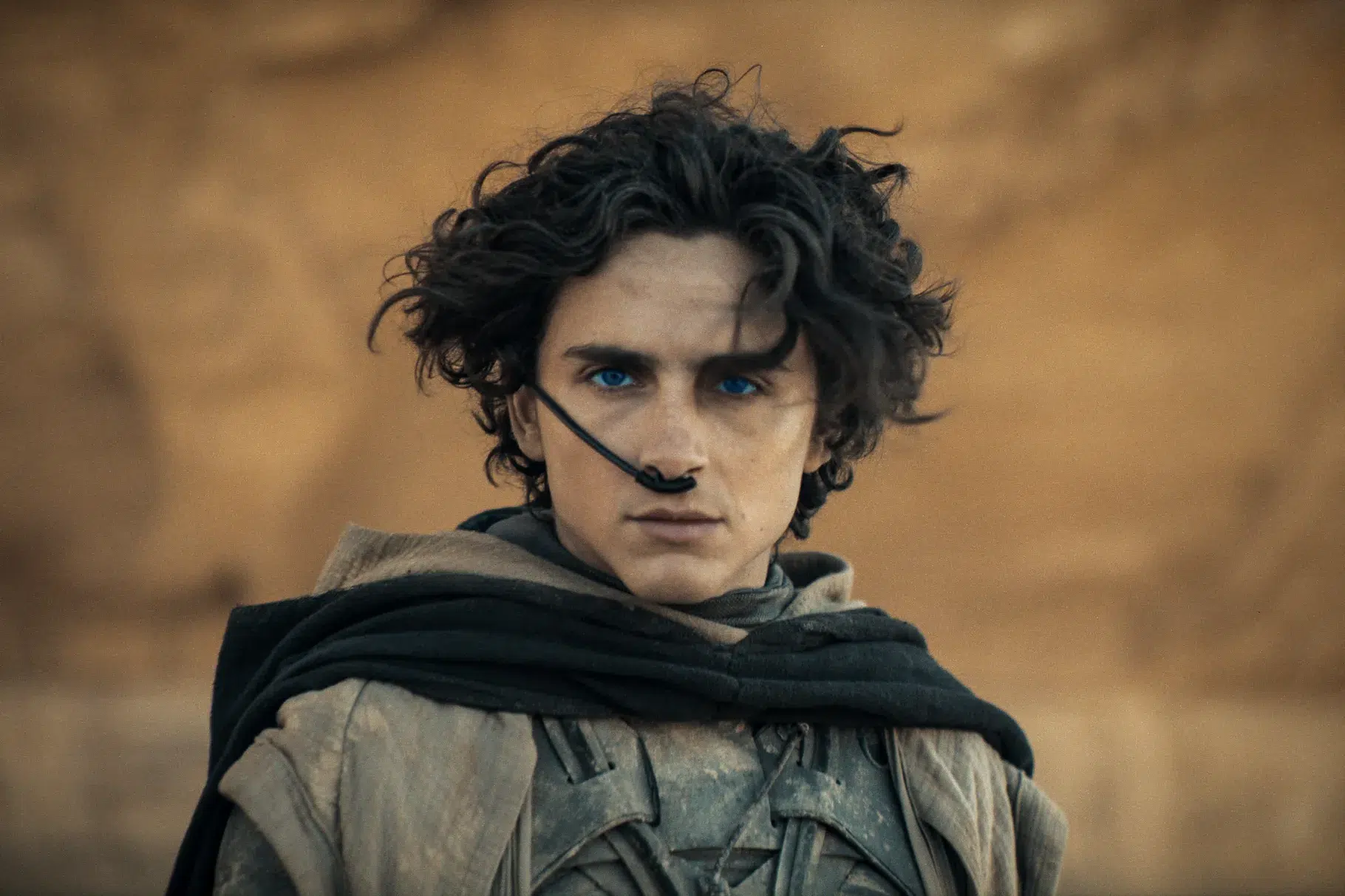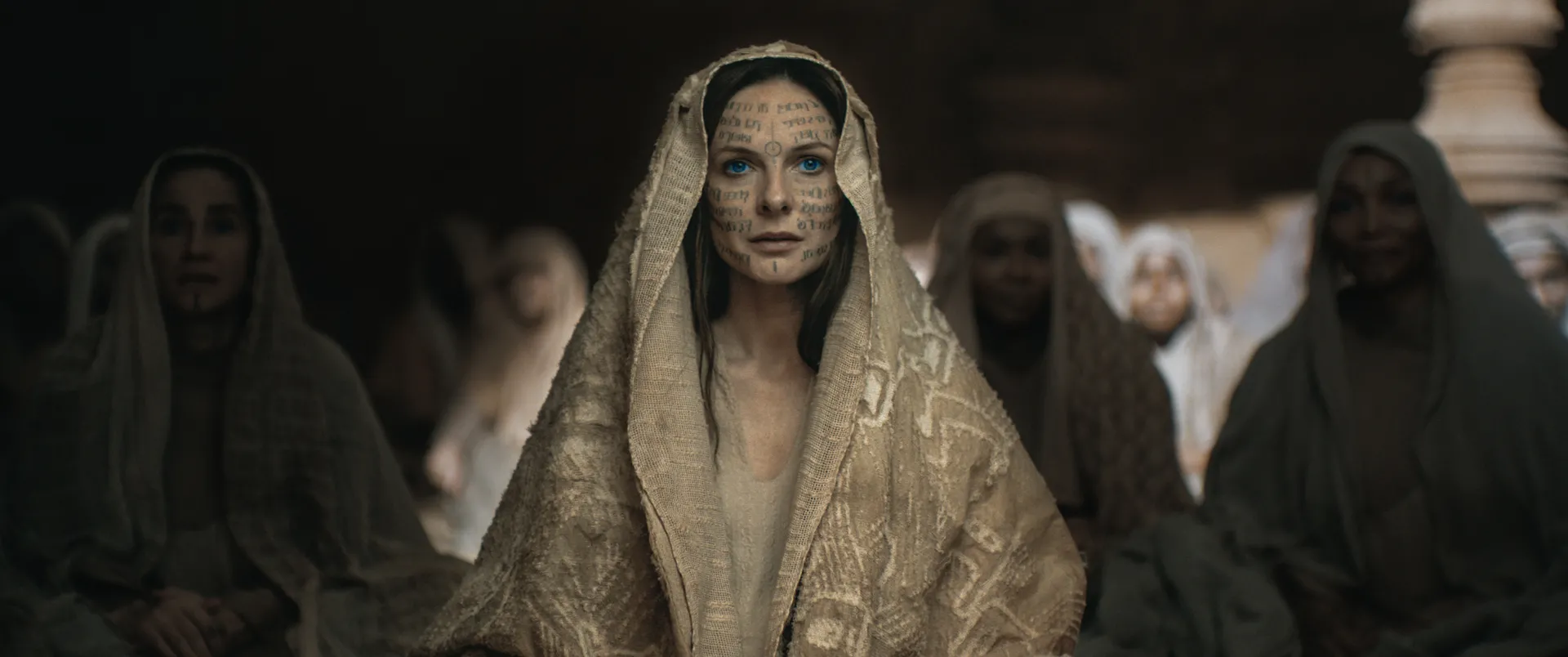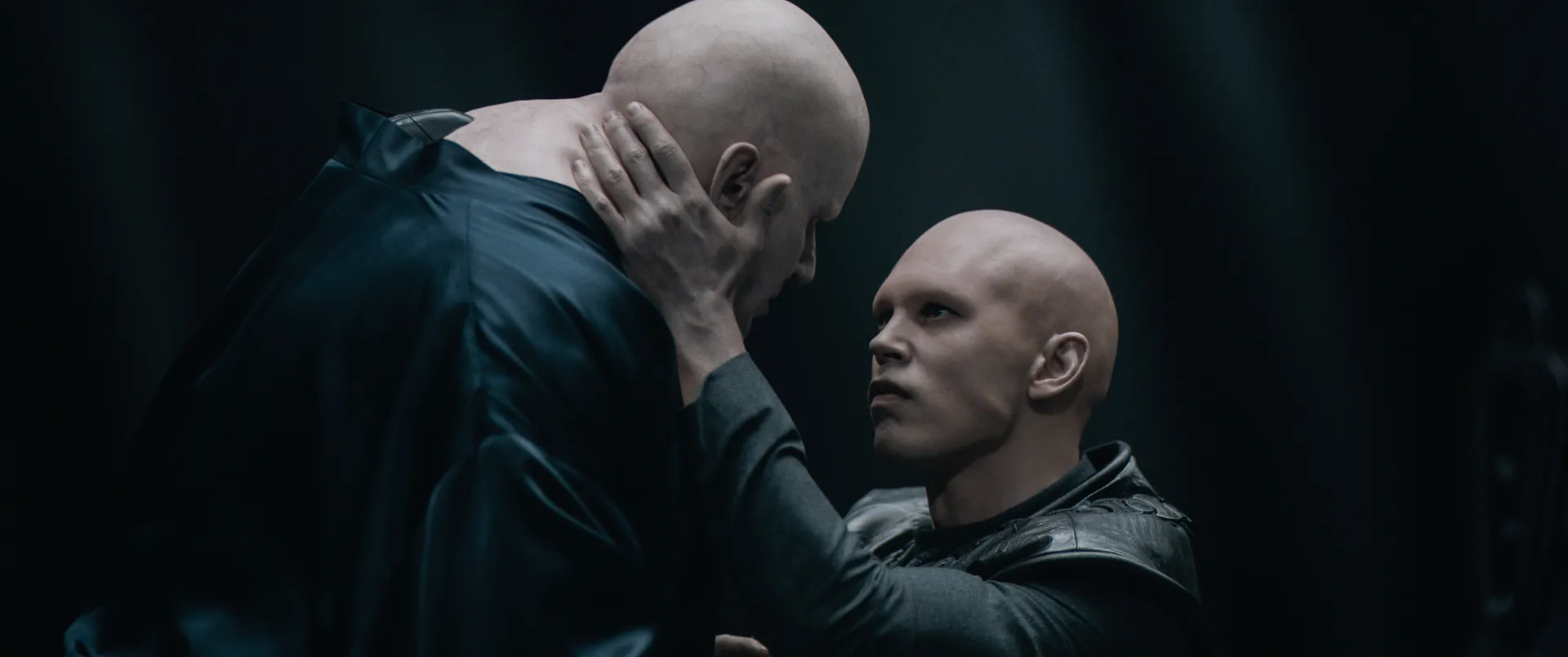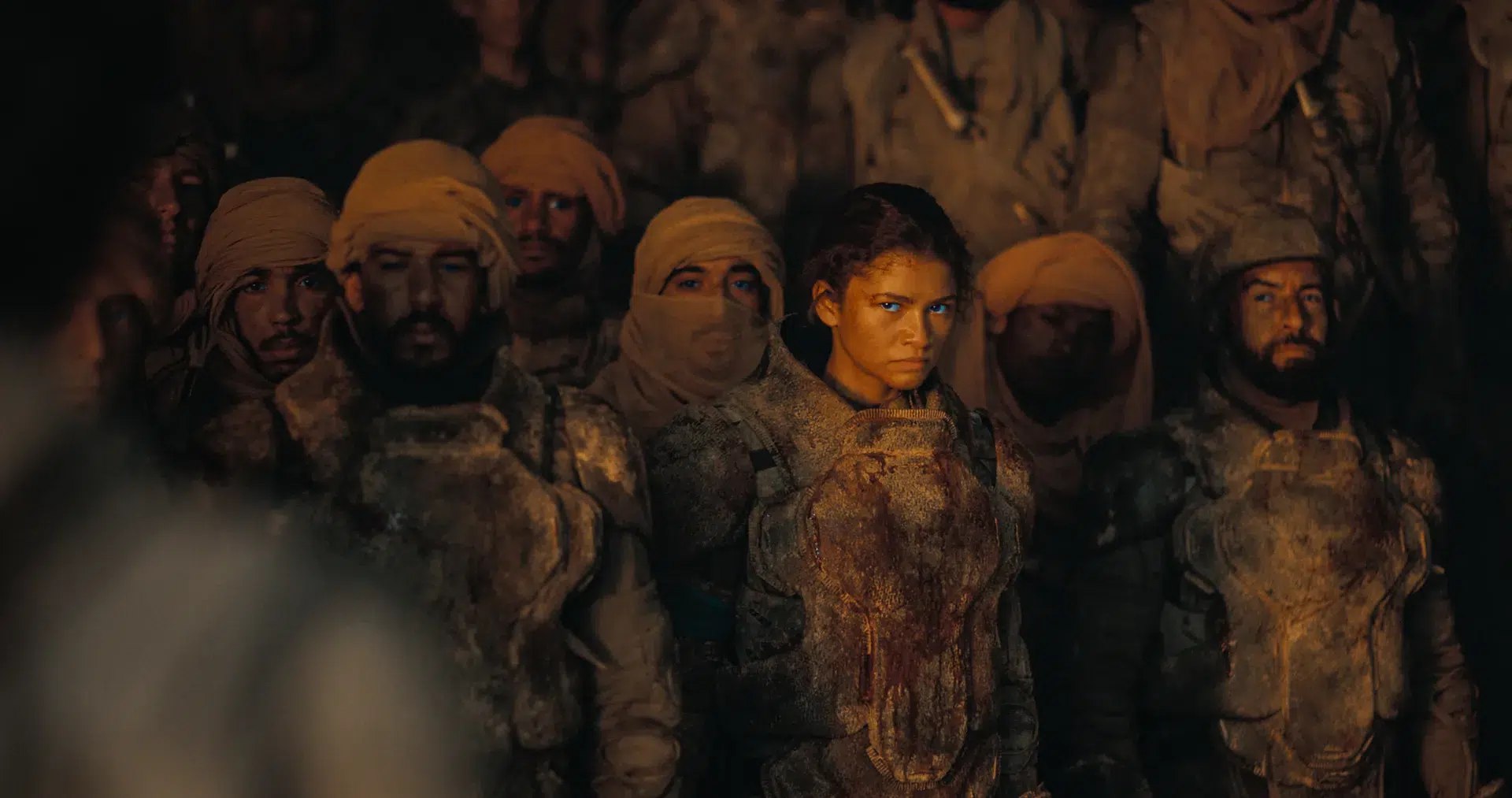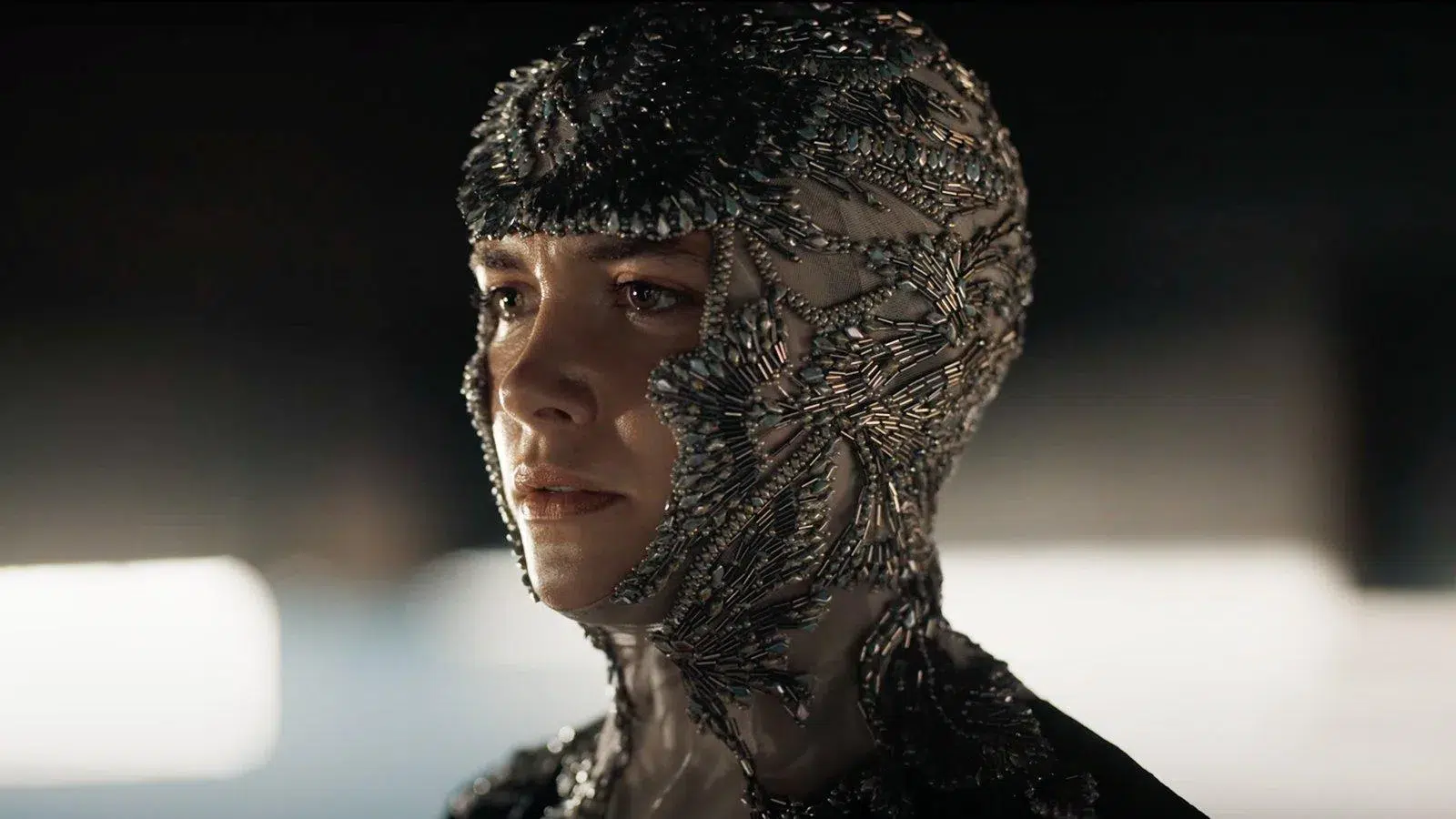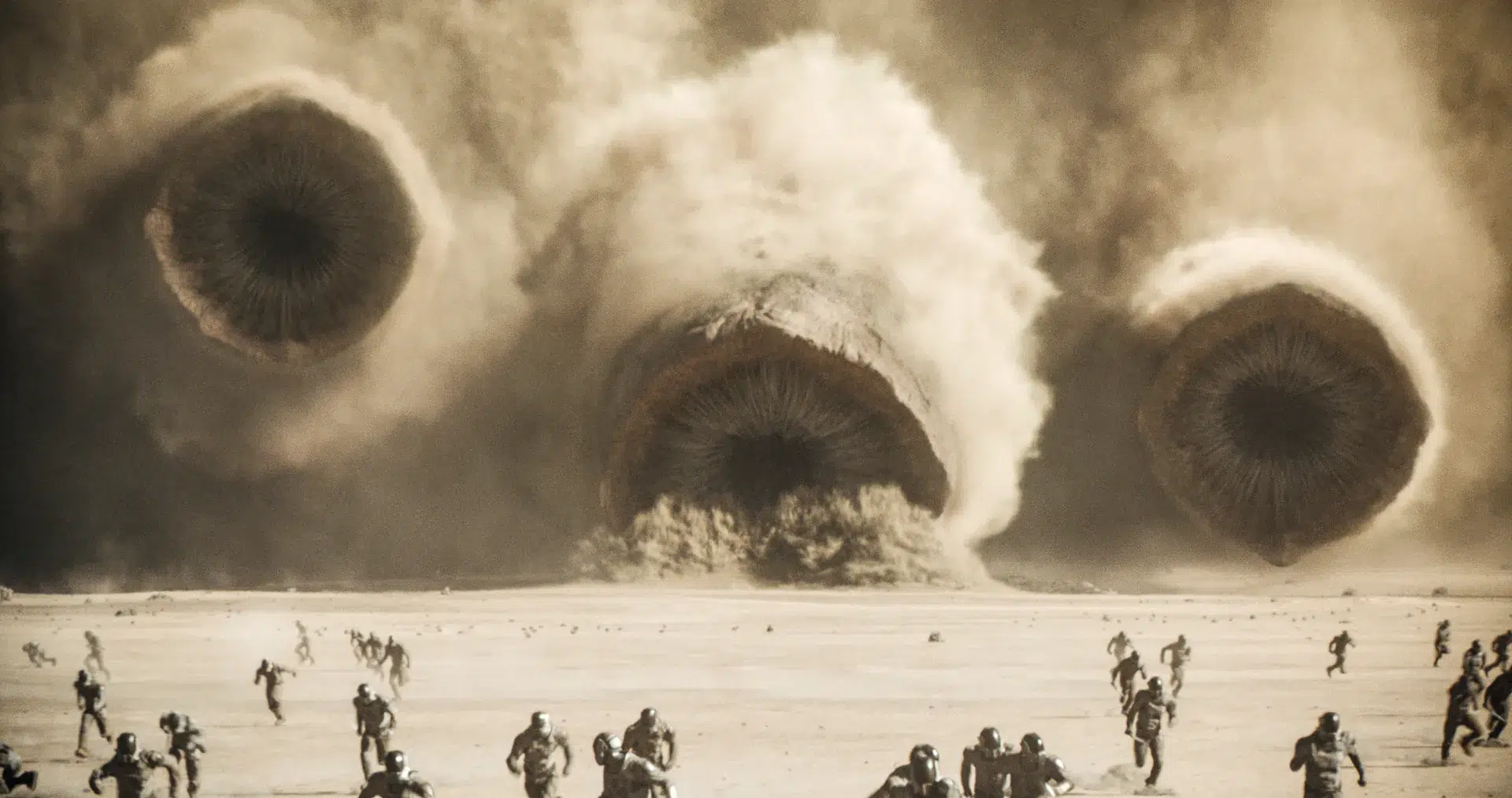BY HARLAN CHAPMAN-GREEN
A new movie season is upon us and that means it’s time to once again to pick up my new mantle as a reviewer of things that appear on the silver screen. I know I’ve said this before, but these reviews aren’t meant to be the be-all and end-all of critique writing, I’m not a professional movie watcher (Jovan is more of that than me, it’s like his full-time job), but I know what I like and I enjoyed thinking critically when I was watching films last year. If you don’t like it, let me know, conversely if it’s something you want to see more of then do tell us in the comments section (and let us know if there’s anything you want us to write about).
I’m gonna do this review a little differently to my other ones. Essentially, because this is such a long and complex story and I haven’t covered the first film, I’m not gonna give you a full plot synopsis. Instead, we’ll look at a few scenes that I think are very important for the plot and then try and tie this all up at the end. With that said, it’s time to talk about what’s sure to be one of the most important blockbuster releases of the year, Dune: Part Two.
The following contains personal opinions plus spoilers for Dune: Part One AND Part Two.
Before we begin class, put your hand up if you have heard of the Dune science fiction series before the first film came out. Okay, now keep your hand up if you know what’s happening all of the time in it. Has anyone got their hand up, still? The Dune saga is quite unique in the world of science fiction, it’s also incredibly influential on the sci-fi genre as a whole thanks to its strange worlds and the complex topics discussed by the stories. At the same time, I wouldn’t be too surprised if you hadn’t really come across the Dune franchise before, it’s mostly made up of books, although there was a movie by David Lynch released in 1984, and even a TV miniseries. The reason you may not have heard about these today though is mostly down to the fact that they have a reputation for not being very good, whether that’s true or not is a different matter.
It seems to me that if anyone wants to make an adaptation of the Dune story in a format like TV or a movie, they first need to be completely aware of the story and be able to comprehend the advanced concepts and themes it delves into fully. That understanding must spread to everyone taking a large part in the production like the cast, the editors, the musical scorer and the publicists, to name but a few. Everyone must understand what’s happening at any moment in the story, especially the director. I’m sure even the average moviegoer will be aware of tales from Hollywood of when influential people in a movie didn’t entirely understand their story or their characters. Lots of folks didn’t feel Zack Snyder understood his characters when creating Batman v Superman: Dawn of Justice (2016), so imagine the mess that could be created when adapting Dune.
Watching Dune: Part One (2021) will have shown you that Denis Villeneuve totally understands what’s happening in the Dune universe, and Dune: Part Two continues that. I’ll make two observations about this film right off the bat: the first is that this is definitely a story that needed to be split into two parts, there’s no way anyone could convincingly fit this into one film without cutting out so much you can barely follow it (ergo, the 1984 version). Indeed, squidging it into one movie was what happened with The Creator (2023), and I said in my write-up about it that it needed to be split into two films to make the most of it. If Parts One and Two were put together it would take over five and a half hours of watching, and nobody’s going to sit in a cinema watching one movie for that long.
The second observation is actually more advice for you to get the most out of the film. Dune: Part Two doesn’t really recap on the events of the first part other than briefly in voiceover, so make sure that you take an evening to rewatch the first part if you want to get fully immersed, I made that mistake and therefore had to spend some time bewildered by what was happening on screen, I caught up, but it could’ve been avoided. If you haven’t watched Dune: Part One (2021) or read any of the books then I don’t recommend watching this at all, you won’t have a clue what’s happening and I’d hate for you to spend two and a half hours frustrated.
Dune: Part One (2021) ends with the main character Paul Atreides, played by Timothée Chalamet (Interstellar, Wonka) and his mother, Lady Jessica Atreides, played by Rebecca Ferguson (Mission: Impossible – Rogue Nation, The Girl On the Train) disappearing off into the plains of the desert world of Arrakis. This happened because their home city of Arrakeen (the main stronghold on Arrakis) was ransacked by the forces of the evil Baron Vladimir Harkonnen (played by Stellan Skarsgård (Ronin, Mamma Mia!)). The Harkonnen House is the villainous faction of the story and mortal enemy of the Atreides House. The Harkonnen House is seeking revenge after they were replaced by the Atreides House as the holders of the world of Arrakis, which is the galaxy’s only source of “spice”, a type of psychedelic drug. The Harkonnen forces attack Arrakeen by surprise and capture it, forcing the Atreides to flee or be captured.
We pick up the story in Dune: Part Two with Paul and Lady Jessica surviving with the Fremen, the natives of Arrakis. Their de-facto leader, Stilgar (Javier Bardem – No Country for Old Men, Skyfall), informs them that their Reverend Mother is dying, and that Lady Jessica should become the new one. In the Dune universe, a Reverend Mother is a Bene Gesseritt (a member of the Bene Gesseritt sisterhood) who drinks the “water of life”, a poison which can kill some women but can be survived by others. A woman who survives the poison unlocks the ability to see all of the genetic memories from her female ancestors, so far, men are always killed by the poison.
This development has quite a bit of influence over the story. Lady Jessica’s character becomes quite dark throughout the film, but you need to either have done a bit of pre-reading or be very focused in the cinema to figure out what’s happening and why. Essentially, the ‘awakening’ caused by the “water of life” has also awakened the mind of Lady Jessica’s unborn daughter (which nobody except Paul and Lady Jessica knew about), and they’re able to communicate telepathically, deciding they must use their telepathic powers to “convince” people to follow Paul into battle against the Harkonnens. In the various sequels to the Dune novel, this scene has real ramifications as such young minds aren’t meant to be ‘awakened’ so early in their development, it actually leads to psychotic instability in Paul’s younger sister when she grows up, but we don’t get that far in Dune: Part Two. It took me a little while to work out what was happening but I got there in the end, and we have quite a few scenes showing Lady Jessica talking to her unborn child so we can figure it out. I like that the film didn’t try to explain it or use ‘technobabble’ or something which lots of films seem to do these days. Being left to figure a lot of it out for yourself is another key theme for this film, for better and for worse.
Anyway, while this is happening, Paul is learning the ways of the Fremen much to their amusement. However, he is committed and eventually earns their trust after learning to speak their language and passing their most difficult test: riding a sandworm, which was one of the most visually impressive scenes in the entire film. The sandworms are enormous creatures which burrow through the sand causing devastation and fear wherever they go, young sandworms are responsible for creating “spice” and also the “water of life”. They’re virtually impossible to kill when they’re adults mostly due to their size which, according to Wikipedia, seems to be an average of 400m (1300ft) long with a diameter of about 40m (130ft), although it’s noted that the one Paul rides on is more than quadruple that. This scene is definitely one of the highlights.
We also see more of Chani Kynes (Zendaya – Dancing With the Stars, Spiderman (various)) who is one of the Fremen, she becomes more interested in Paul after his ride. She respects him at first, but their relationship gets a lot closer throughout most of the film. I think Zendaya puts in a really strong performance here, I got invested in Chani as a character because she’s motivated to do the right things purely because they are the right thing to do. She’s also not written in a way that makes fun of Paul or makes him the butt of any jokes, she respects him and likes him as a person.
Meanwhile, the Fremen have also been using guerrilla tactics to destroy the equipment used to recover “spice” from the Arrakis sand, so much so that Baron Harkonnen replaces his current nephew, Glossu Rabban Harkonnen (portrayed by Dave Bautista – Guardians of the Galaxy series, Spectre) -the current ruler of Arrakis, with another nephew who is younger and much more ferocious: Feyd-Rautha Harkonnen (played by Austin Butler – CSI: Miami, Elvis). Butler’s performance is another fantastic addition to the film, he’s got real energy, dark energy, he would definitely classed as chaotic evil. He has an interesting scene where he fights some of the remaining Atreides troops who have been locked up since the siege of Arrakeen. These men are battered and weary, so only one of the three is a real challenge for him, but you get to see what kind of character he’ll be very quickly. They also have some awesome looking black fireworks after the fight, this scene again is something that looks incredibly impressive.
We’ve now skipped ahead a bit and we’re in Southern Arrakis. This part of the planet is described as almost completely inhospitable, where religious faith is one of the only things keeping people going. Lady Jessica believes that the Fremen cause needs the help of the Southerners, but Paul has been reluctant to go as he’s been having vivid dreams about a terrible war breaking out because he went there. However, a monumental surprise attack from Feyd-Rautha’s forces obliterates the hiding space of the Fremen, forcing them and Paul to flee to the South on the backs of sandworms.
In the South, we learn that the “water of life” is extracted from a young sandworm when it’s forcefully drowned in water (regular water is toxic to sandworms as it’s not something naturally occurring where they live on Arrakis). Against Chani’s wishes, Paul drinks the “water of life” and becomes the first man to survive it, his mind having been awoken. He is now able to see the past and the future more clearly, and he realises that Baron Vladimir Harkonnen is his grandfather. This action also alienates Chani as she starts to feel that Paul’s reasons for fighting the Harkonnens are his family’s glory and honour rather than because it’s the right thing to do. At least, that’s my interpretation of it, this detail seems quite different from the books.
From here the film seems to do quite a lot. I haven’t mentioned yet that there have been some scattered scenes with Emperor Shaddam (Christopher Walken – Pulp Fiction, The Outlaws) and Lady Margot Fenring (Léa Seydoux – Inglorious Basterds, Spectre). What they’re doing in the story is quite unclear until near the end where Paul challenges seemingly the entire galaxy to a war for the throne of Arrakis, baiting the Emperor to arrive at Arrakeen with his forces. Gurney Halleck (Josh Brolin – The Goonies, Avengers (various)) also turns up having survived the assault by the Harkonnens in the first film, he seems more of a mental leader for Paul than anything else, but he does get a good fight in with Glossu Rabban Harkonnen in the siege.
Paul and his Fremen forces attack the Harkonnens in Arrakeen by surprise, much like the Harkonnens did to them in the first film, they even use sandworms when assaulting which is quite a spectacle. Their forces sweep through with little resistance and they get to the throne room where the Emperor has more or less had enough of Baron Harkonnen and deposes him, Paul stabs the Baron in the neck while he is down meanwhile all the Emperor’s troops just seem to stare at him. The Baron dies and Paul challenges the Emperor to a duel, the Emperor of course selects Feyd-Rautha as his champion and we get a great duel between the two.
Paul kills Feyd-Rautha and agrees to marry Irulan Corrino to secure the safety of the throne, this is the final straw for Chani even though Paul says he’ll always love her. The other Great Houses refuse to honor Paul’s right to the throne of Arrakis and so he declares war on them with his Fremen forces. The film ends with Chani riding a sandworm away from it all, having been extremely upset by Paul’s actions.
Wow. Honestly, if you still didn’t understand what was happening after my writeup I’d understand, I did the best I could but I haven’t covered everything. Both of the Dune movies are fantastic works of art both visually and aurally, Hans Zimmer (Inception, Dunkirk) is on top form with his musical scoring and it really does make all the difference here.
In fact, perhaps the best thing about Dune: Part Two is that nearly everyone is in top form. The acting, directing, music and sound effects plus the editing are all phenomenal, you really get immersed in the Dune universe and it’s a very cool place to be. It’s as visually appealing as the Avatar movies, although this achieves it without the amazing colours and alien fauna.
It’s a bit ‘advanced’ for me in some places, in that I struggled to understand some of the concepts in it, but if I’d read the story in advance that would’ve helped. In fact, that’s probably my biggest criticism of the film, you can’t hop in and get an understanding of what’s happening. You really have to dedicate some time to it, but if you do you’re well and truly rewarded. I would recommend doing a little light reading one evening and also watching Dune: Part One, once you’ve done that you’ll be very pleased with this. Given that this has made over $180m at the box office so far (the highest Hollywood release) and nearly broken even before its first week is over, it’s left itself open nicely for a third film. So we will probably see a Dune: Part Three at some point. I’m glad that the Dune franchise is getting the love it deserves, it’s a real case of treating something with respect and being rewarded for it. I think Frank Herbert, the author of Dune, would be impressed.

